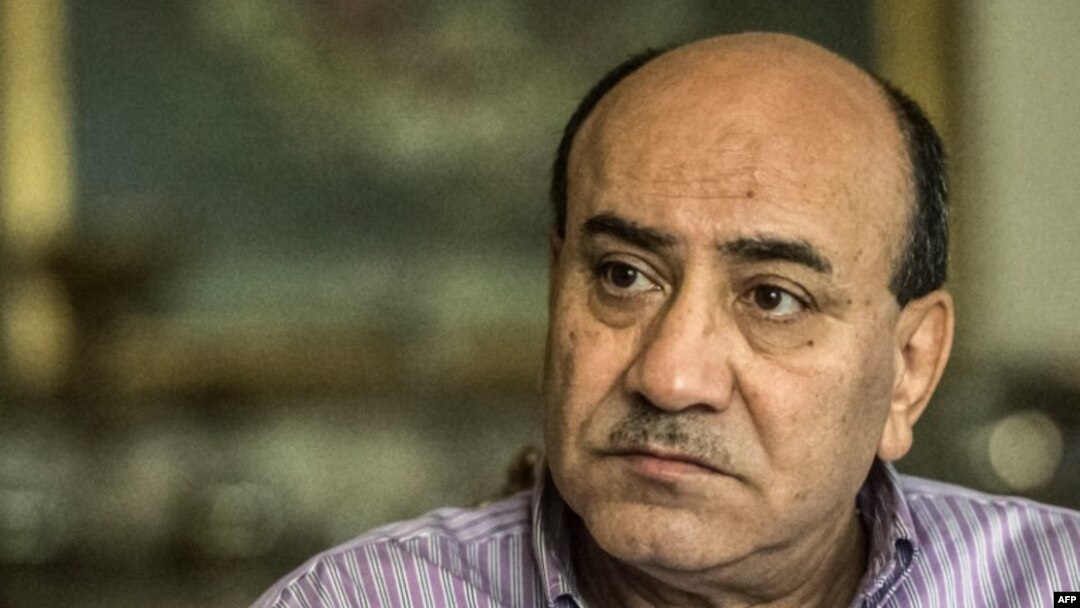Hisham Geneina was charged Tuesday with "joining a terrorist group and spreading false news", according to rights activist Hossam Bahgat.
This is the same case in which a number of journalists were detained in 2018, including Moataz Adnan, who conducted the HuffPost interview and was released in 2021.
"It is typical of the practice of rotation," Bahgat said, referring to what rights groups call a "revolving door" system where prisoners are detained on new charges instead of released.
A military court had found Geneina guilty in 2018 of "spreading information to harm the military", after he had said in an interview with news website HuffPost Arabi that a former presidential candidate held documents that would "incriminate many people" within the regime.
Ahead of his release, Geneina was transferred to civilian state security prosecution, where he was "charged in a new case and released without bail but on guarantee of his place of residence", Bahgat told AFP.
Geneina's release comes a day after opposition figure Mamdouh Hamza arrived in Egypt after his name was removed from the state's "arrival watch-list", by which dissidents abroad are often detained when they return to the country.
The emergency court decision that sentenced Hamza to six months in prison and added him to the state terrorism list in absentia was overruled in 2021.
Hamza, in his mid-70s, had remained out of Egypt for more than three years, and is set to stand for a retrial in the coming months, according to local media.
Rights groups say there are around 60,000 political prisoners in Egypt, many facing brutal conditions in overcrowded cells.


